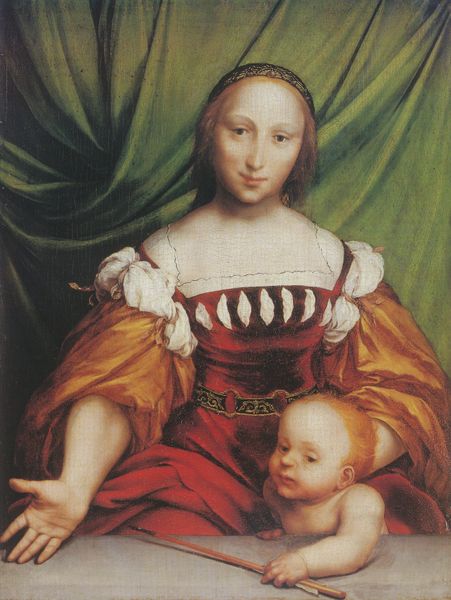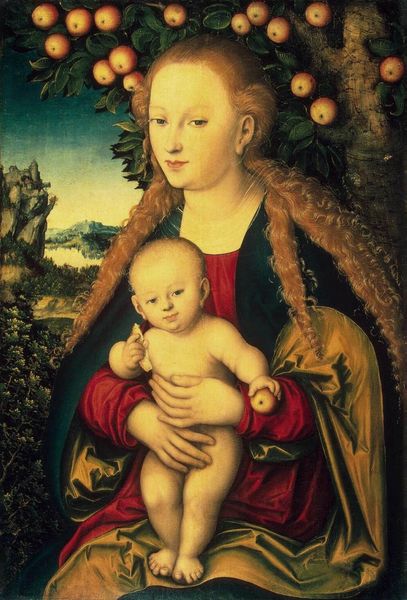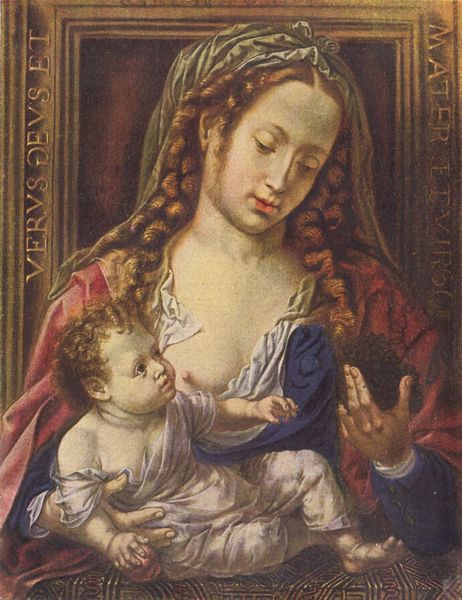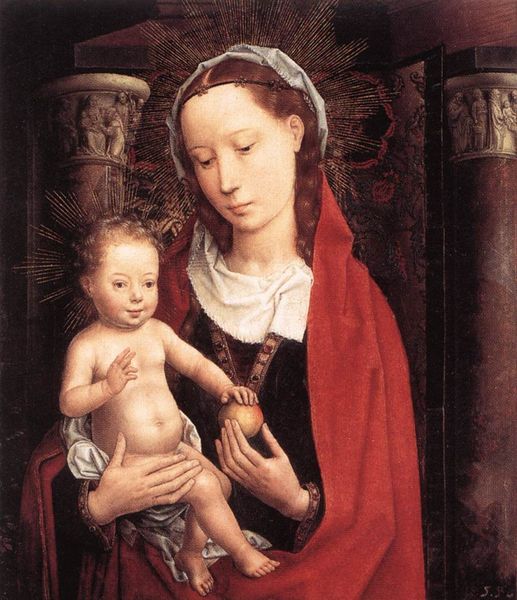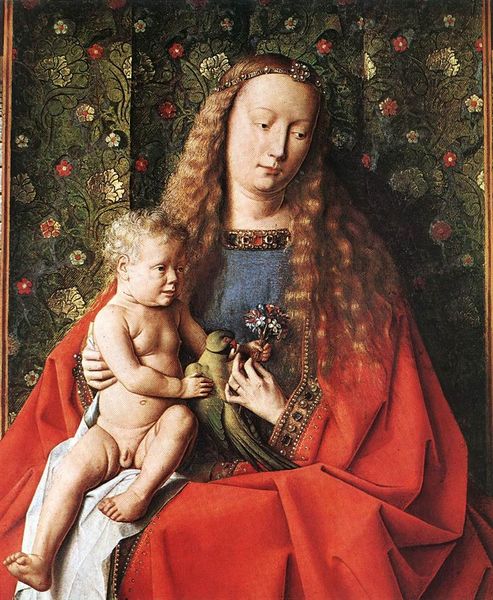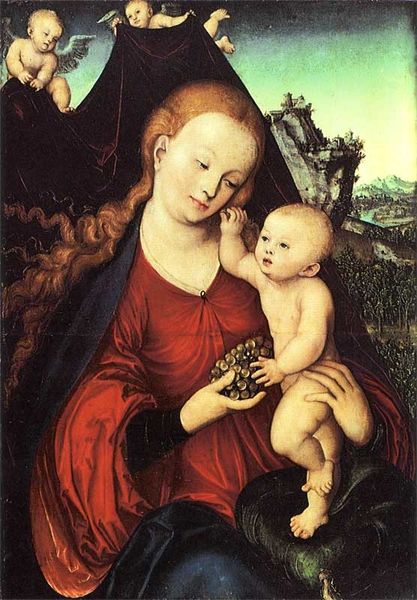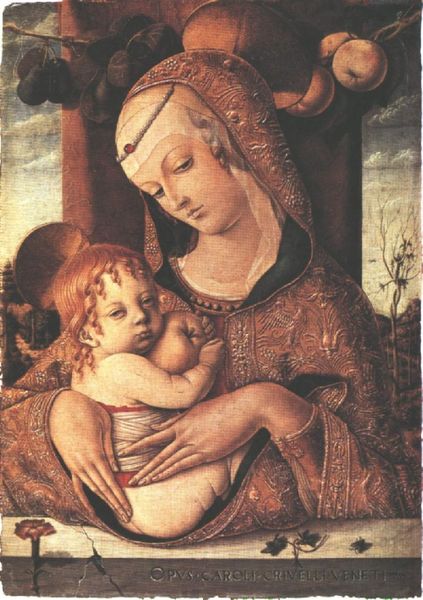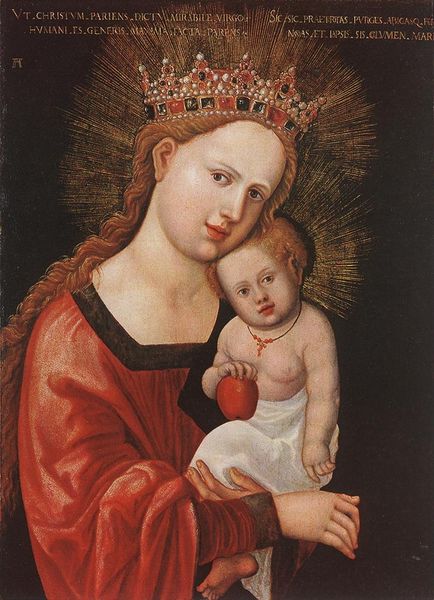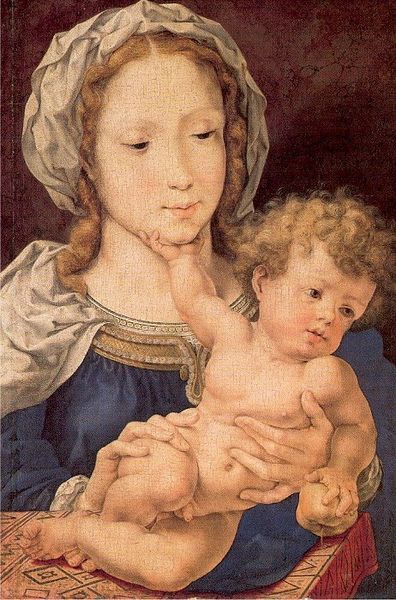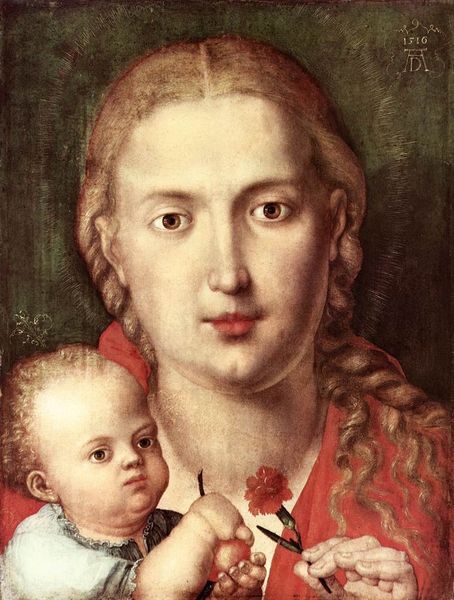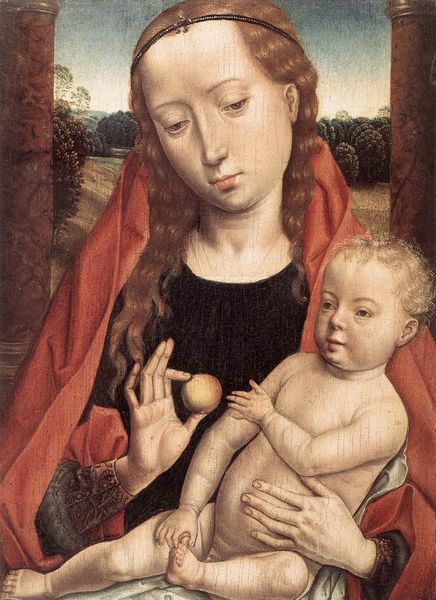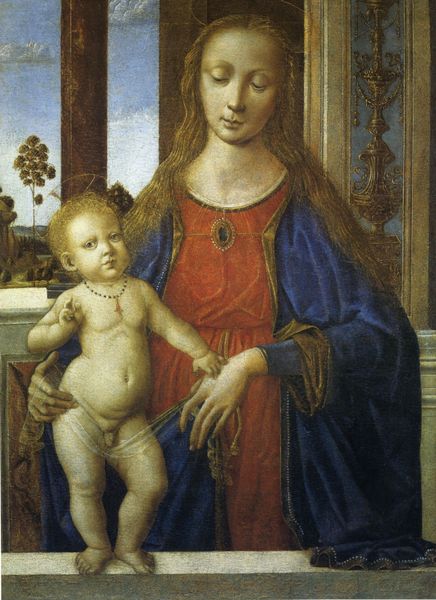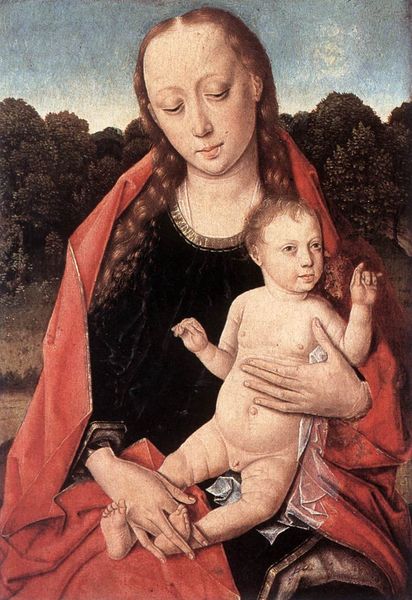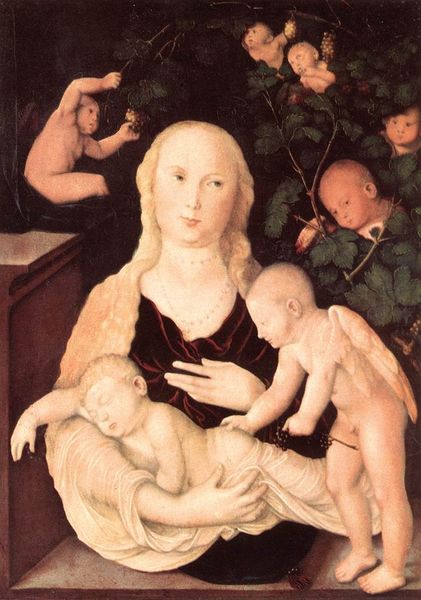
painting, oil-paint
#
portrait
#
painting
#
oil-paint
#
figuration
#
11_renaissance
#
history-painting
#
northern-renaissance
Dimensions: 60 x 37 cm
Copyright: Public domain
Editor: This is "Young Mother with Child," an oil painting by Lucas Cranach the Elder, created in 1529. There’s a stillness to this painting, almost like a posed photograph. The mother’s gaze is so direct. How do you interpret this work? Curator: Well, consider the gaze, as you mentioned. It's less about personal expression, more about archetypal representation. Motherhood itself, but also perhaps something more. Note the jewelry and ornate clothing. Cranach often painted courtly figures, placing them within idealized landscapes. What might the setting tell us? Editor: The background almost feels like a stage set. Curator: Precisely. And behind her, what appears to be a castle ruin? Think about the imagery embedded here. Ruins can represent the passage of time, the cyclical nature of power. The mother, then, embodies not just life, but continuity. A visual assertion of dynasty? Editor: So, the child and the castle both point to a future, and a past? Curator: Exactly! Cranach weaves symbols expertly. The gold, not just an indicator of wealth, but of enduring value. The direct gaze: an almost confrontational declaration. What feeling do you get from her facial expression? Is she warm, maternal? Or…something else? Editor: I see a strength, but also a kind of formality, not quite tenderness, a statement, maybe. Curator: That statement transcends a simple portrait; it becomes an icon of lineage. That feeling of strength, formality, reinforces the idea that the work captures more than just a woman with a child. Editor: It’s amazing how much information can be packed into a single image. Curator: Indeed. Cranach was masterful in using imagery to reinforce layers of meaning. This painting isn't just pretty; it’s a visual record and a carefully constructed narrative.
Comments
No comments
Be the first to comment and join the conversation on the ultimate creative platform.
